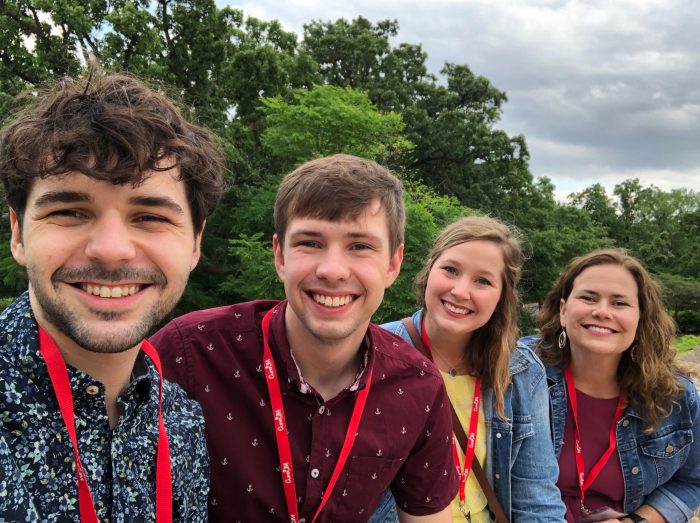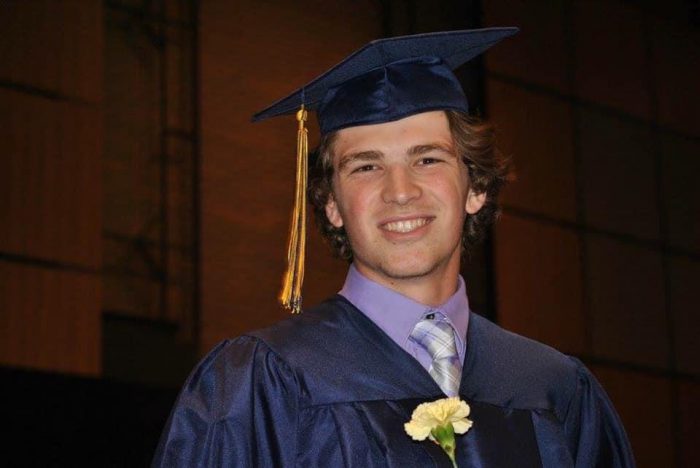Wide receivers, by nature, are quick on their feet.
Former IU player Rhett Lewis (BS’05, MS’06) earned a dream job position at the NFL Network with his versatility and hustle as a reporter. He’s encouraging the next wave of media students to follow suit.
“I am, I will guarantee you, the biggest advocate of internships,” Lewis told Dr. Galen Clavio’s C227 class on Feb. 25 at Franklin Hall.
Lewis started his professional reporting career interning for WISH-TV in Indianapolis, under the wing of veteran sports anchor Anthony Calhoun. That connection allowed Lewis to collect beat coverage clips of the Pacers, Fever and Indianapolis Motor Speedway events.
Soon after, his first job came calling: a sports director position for CBS affiliate KLBK in Lubbock, Texas. The move placed him into coverage of iconic firebrand Texas Tech coaches Mike Leach (football) and former IU coach Bob Knight (basketball), as well as the Big 12 Conference. The subjects alone were challenging, Lewis said, but it motivated him to meet the next professional standard.
“If you have an opportunity to start small, even if the pay sucks, it’s worth it,” Lewis said. “I could not have ended up in a better possible spot.”
The experiences stayed with Lewis, too — come 2008, when the Great Recession plagued job seekers nationwide, Lewis moved back home with his parents in New Orleans. But his lengthy resume and professional experience soon secured him a full-time producer role in his hometown at FOX affiliate WVUE. Nine months later, Lewis was tapped on the shoulder to be an anchor/reporter at WHDH in Boston, a top-10 media market city. In his five years there, each of Boston’s four major pro sports teams (Bruins, Celtics, Patriots, Red Sox) won a national championship.
The big-stage experience as a reporter led Lewis to his current NFL Network role, where he’s entering his sixth season on-air. But he made clear to media students that some of the best jobs will require accepting unusual circumstances, such as his role with the Culver City, Calif., outlet. Hosting an early morning football talk show on the East Coast required him to wake up at 9 p.m. Pacific Time, then go live with his reporting at 3 a.m.
And that’s just the daily schedule.
“You might work two days a month in June, but then 16 straight in December,” Lewis said.
Lewis also encouraged media students to be versatile and conversational — casual, not rigid. He says it’s that intangible nature picked up through on-air experience that can mean the most opportunities for sports media students.
He cited one NFL legend’s sparkling personality on the network as a point of influence.
“I want my wife to talk to me like the way NFL players want to talk to Deion Sanders,” he said.


